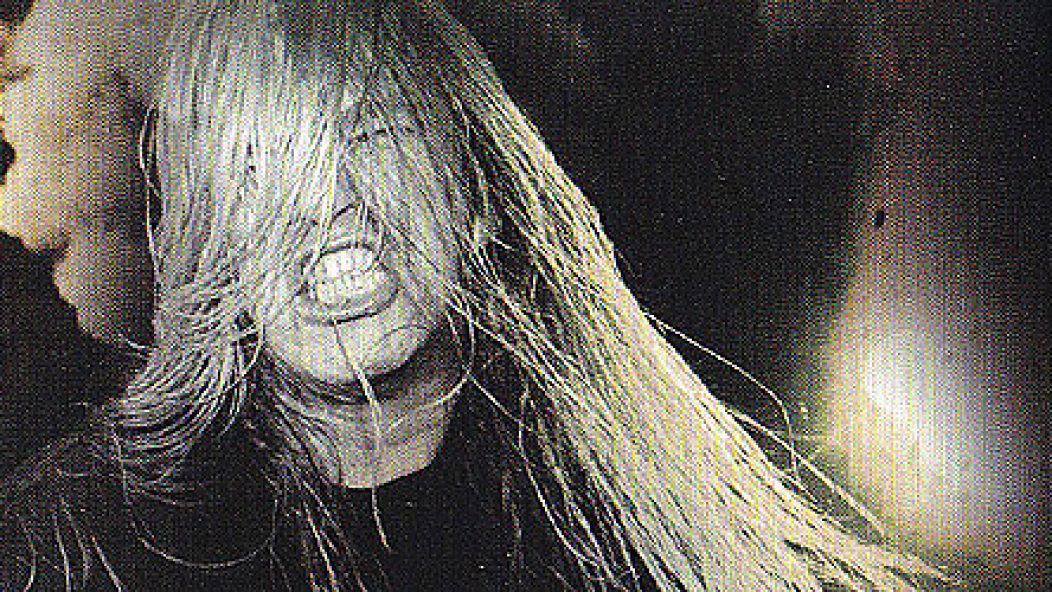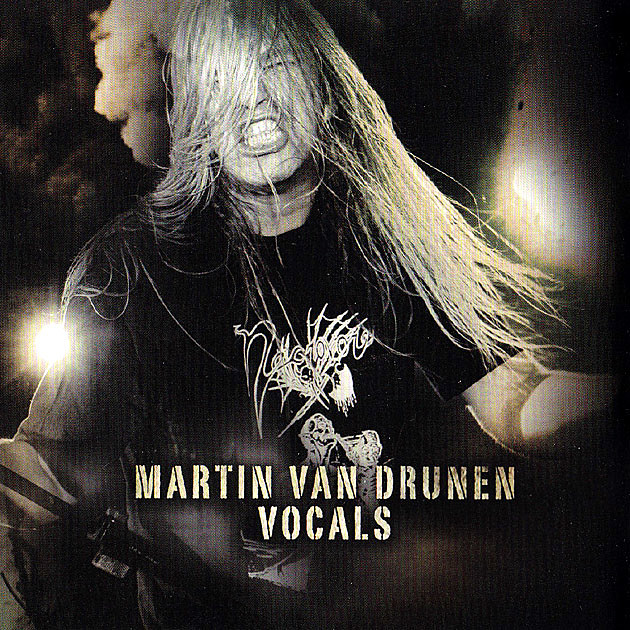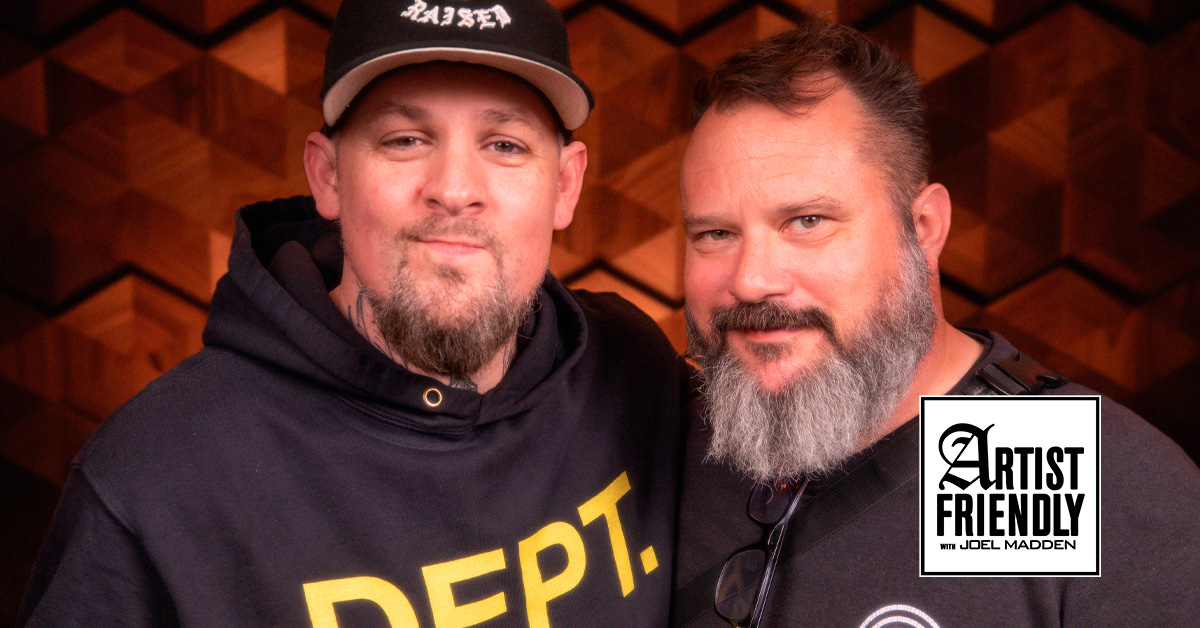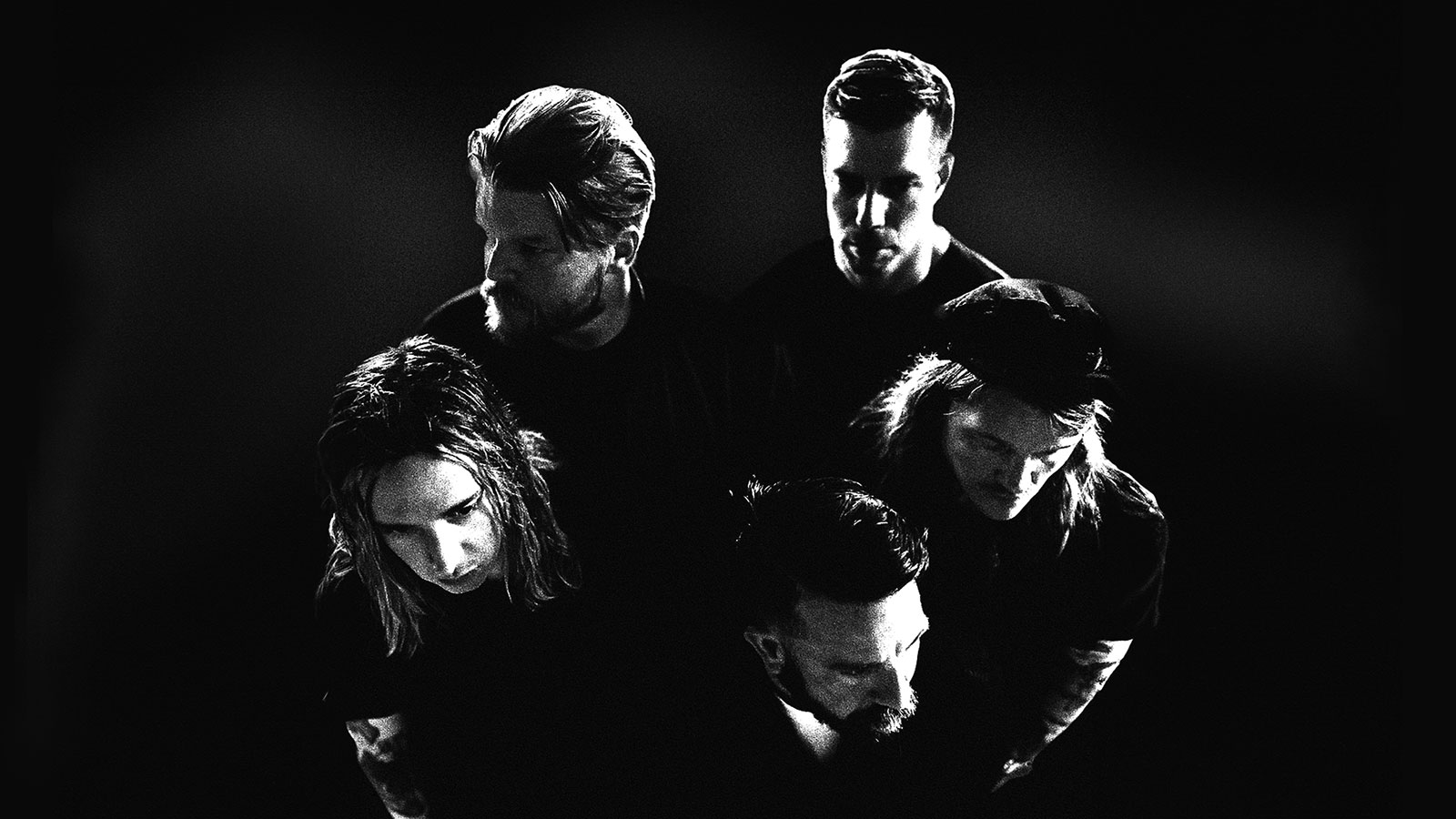
Interview: Martin van Drunen (Hail of Bullets, Asphyx)

. . .
If there were a Mount Rushmore for death metal, Martin van Drunen would likely occupy two spots, even though he’s Dutch and never played in the United States with his most famous band Asphyx until 2009. Although van Drunen is best known for providing vocals for three peerless death metal bands – Pestilence, Asphyx, and Hail Of Bullets – he’s also an amateur historian, a first-class joker, and one of the most easygoing musicians I’ve interviewed. There isn’t a death metal vocalist alive that could fill his boots. That’s not hyperbole – it’s proven fact.
van Drunen studied and read up on the Pacific campaigns of World War II to write lyrics for the band’s latest album, On Divine Winds, much like he studied Stalingrad when writing the band’s Metal Blade debut …Of Frost and War. But van Drunen doesn’t take himself so seriously that he refused to indulge my request to sing a few verses from the Asphyx classic “Vermin” via cell phone from Holland. He’s also mystified by the size of George “Corpsegrinder” Fisher’s trunk-like neck.
. . .
On Divine Winds is a concept album about the Pacific campaigns during World War II. What was it about this part of the war that fascinated you?
The most fascinating thing to me was the political situation in Japan and what caused the whole conflict, their drive for expansion. Because we’re Western countries, it’s hard for us to imagine how it was possible. I couldn’t work all of that out on this album, but it was still really fascinating.
The Dutch had colonies in Indonesia called the Dutch Indies. The Japanese occupied that area and there were several Dutch women that were captured and used by the Japanese soldiers as prostitutes. After hearing that, I wanted to find out what was happening on that side of the globe. So I started to read. I wanted to get more and more books. I had books from historians and was fortunate to find things from Japanese soldiers who put their thoughts on paper. They were hard to find. There were also a lot of books written by American Marines and prisoners of war. [On Divine Winds] was all based on the books I read.
With all the attention paid to European campaigns in World War II, do you think people forget the Pacific history because they are more interested in what happened with the Nazis?
Definitely. Some of the parents of the U. Marines in Japan didn’t even know where their kids were fighting. There were all these small, little islands. Even now, I talk to people who don’t know about it. But the battles were really bloody, and it’s kind of insane that more people don’t know about them. The battles were very important. It’s weird that no ones remembers them or gives people more credit as Allies for bringing the Japanese Empire to their knees.
Do you think Europeans are more attuned to what happened in World War II because a lot of it happened in their backyard, in the same way Americans are obsessed with the Civil War?
There’s a point there. My father was a 15 when the war ended, so he experienced it. But he didn’t have to fear the Germans as much, because he was just a normal Dutch kid. My uncle, who was a little older, was transported to Germany into forced labor. He escaped and joined the Dutch resistance. There are a lot of people here who experienced the war or lost people because of executions. In Europe, we were all occupied and experienced it from a different point of view.
Early on, the US was isolationist and still suffering from the Depression. If Pearl Harbor didn’t happen, there’s still a question of what the US would have done. You couldn’t let Pearl Harbor go. That started the whole war machine economically in the US.
. . .
Hail of Bullets – “Operation Z” (official video)
. . .
Throughout your metal career, war has been a perennial concern, even if it was more fictitious with Asphyx. What do you find fascinating about warfare?
Basically, how mankind can get involved in these gruesome things and the atrocities of war. I was never into singing about zombies because actual atrocities take place in war. I’m always astonished at what one person can do to the other. There’s also a fascination with how certain regimes can build and indoctrinate a population to start a war. It’s usually explainable, but as a rational, thinking human being, you don’t think you’d join an ideology or movement that would bring destruction and terror.
It’s still going on. There are fanatics in the Middle East that threaten us, and they are just as indoctrinated as the Nazi children or Japanese young men in World War II.
With the technology we have and the benefit of history, people still become ideological extremists.
It’s just strange. Many religious people claim that they are peaceful. But mankind has been doing this shit since we started to walk on two legs. We still haven’t learned.
Could Hail of Bullets do a non-warfare related album?
Well, we could do it, but we won’t (laughs). It’s part of our identity. When we had the first songs on a promo, I knew that this was the kind of death metal that could be used to put together ideas I’d collected. The lads really enjoyed the approach. It’s a challenge, and I’m able to learn a lot, so there are bonuses that come with it. So, I think we’ll stick with the war stuff.
People always refer to Hail Of Bullets as a death metal supergroup. Has that helped the band, led people to look at the band more critically, or both?
It’s a bit of both. Suppose we were a bunch of nobodies starting a band like this – we wouldn’t get any attention. It’s tough for bands playing this style to get international recognition. So it made it easier for us, but there is the pressure of expectations because we are death metal veterans. But I think we can live up to the expectations. The people I work with in this band really know what they are doing.
There’s a lot of copycat death metal. This isn’t a genre where there’s much flexibility. How do you take that template and make it sound consistently interesting?
You have to work on a certain sound, especially when it comes to guitars. And you need time. Eddie [Warby, drummer] has a studio now, so the lads had a lot of time to work on the album. Our sixth band member, [producer] Dan Swano – he makes the difference. We wouldn’t be Hail Of Bullets without Dan.
We also don’t play with blastbeats or play too fast. We can still hear what we are playing and play at a high volume. We do a lot of slow stuff, but it has to sound really heavy. As soon as you go from playing slow to playing blastbeats, you often get a wall of sound and can’t hear anything.
Is the groove always sacred with Hail of Bullets?
It’s extremely important. We try to write songs that are recognizable and catchy, which may sound funny for death metal. But look at older death metal like Autopsy and Possessed. All the songs had a certain buildup and a minimum of riffs, maybe three or four riffs. That’s the way rock ‘n’ roll songs were built. Death metal should be like that. Sometimes when you try to cram 3,000 riffs onto a record, it can be a waste. It goes in one ear and out the other. We want to write catchy, groovy stuff. We know it works, because people sing along to our songs and know them.
You juggle Asphyx and Hail of Bullets. Are there things you do differently between your two main bands?
I try to sing a little deeper with Hail Of Bullets, even if a do scream. But I keep it as deep as I can. With Asphyx, there are more chances to use the whole range of my voice. With the Bullets, I want to reflect the heaviness of the music. With Asphyx, I’m the one that decides and thinks out the vocal lines on tracks and what to use as a chorus or bridge. With Hail of Bullets, Eddie often comes up with great vocal lines and has great suggestions. It helps give the vocals a pace I wouldn’t have thought of. I learn a lot from him.
. . .
van Drunen on pig squeals and being unique
[audio: MARTINVANDRUNEN_TRADEMARK.mp3]
. . .
How did you find your sound and approach as a vocalist?
Sound is something you have or don’t have. I’m privileged and lucky to have this, just like John Tardy. You can just put Obituary on and know it’s John Tardy. It’s what comes out when you start screaming.
All you need to do from there is perfect your technique, and learn to sing without corroding your voice. It’s also important to have a rhythm and groove in a voice like you had in the old days of rock. I always try to keep the beat with my voice and make sure I can speak the sentences I write and not swallow any words. I train a lot and try to keep my voice warm like an athlete.
Do you have any rituals or routines you do before you play?
It may sound weird, but an hour before the show I start to feel the tension and adrenaline, and there’s an unconscious kind of pressure. Usually I start walking around the backstage area. I just walk from wall to wall and repeat the lyrics. There are shows where I don’t do that, but when I do, people look at me like there is something wrong (laughs).
I saw you perform in 2009 at Maryland Deathfest. It was the first American appearance for Asphyx. What was that show like?
I have mixed emotions about it because Mayhem screwed us over. They played too long.
What happened?
When it was time for the changeover, they just didn’t stop. And I went to the promoter, and I was like, “I don’t know what they are doing, and there is a strict curfew. If they don’t stop at 11, we’ll have to forget about the fest”. We told them that at German festivals, people just pull the damn plug out. When [Mayhem] came backstage, there was almost a fight. I was like, “What kind of fucking colleagues are you? You screwed us all over, you bastards”. They were sitting there like little kids.
I was a bit bummed because it was our first appearance. And we only had 40 minutes left from the original 70. The first thing the promoter said is, “I will make it up to you. Come over next year and play a normal show”. Apart from that, it was fantastic, and it was cool to hang out with the US fans who treated us marvelously. It was a great atmosphere.
You said the guys in Mayhem acted like kids, which is pretty funny when you consider their image and reputation.
They were like black metal little kiddies. Their singer [Attila Csihar] was standing up to me, like “What is your problem?” and I just pushed him down on his chair and was like, “Shut the fuck up, I’m talking to you”. They were sitting there like kids who were scared to get beaten up. That’s typical with guys who have a really big mouth. When it all comes down, they aren’t there. They are probably the kind of guys who stab you in the back later when you turn around (laughs). And actually, that’s what they did in the past. That’s how a lot of these guys died. It wasn’t an honest fight.
. . .
Asphyx – “Vermin”
. . .
“Vermin” has to be one of my favorite songs in the van Drunen catalog. Is that a song you enjoy playing?
Always. It’s a fantastic way to start a show. Bang, you’re there, and you know the show will be good, and the crowds always rage when you play it. We have a discussion in Asphyx sometimes about starting off with another song, and then we realize it has to be “Vermin”. It’s a tradition.
Is what makes that song so great the amazing hook?
It’s groovy and recognizable. There’s nothing difficult, but it keeps on pumping, and in the [middle] part, you can really bang your head. I always go berserk when I hear it.
I have it on my iPod playlist for when I lift weights. So you are inspiring people to stay fit.
Alright! That’s very nice to know (laughs).
Are there any Hail of Bullets songs that you love to play live like “Vermin”?
People like “Berlin” and “Ordered Eastward”. They go crazy with fists and lighters, and the place goes beserk when we play them. These are songs that we will always have to play. Every band has songs people want to hear. It’s an obligation you have to play them for the fans. On the next tour, we’ll definitely play “Tokyo Napalm Holocaust”. It’s one of the heaviest songs we’ve ever made.
. . .
van Drunen sings “Vermin” over the phone
[audio: MARTINVANDRUNEN_VERMIN.mp3]
. . .
Have you had any contact with the guys in Pestilence since they reunited?
No, nothing. Me and Patrick [Mameli, Pestilence guitarist] hooked up in around 2000, and we started talking a bit about doing it again. He had an idea of calling it Pestilence 2000. I was like, “Yeah, we can do a couple of shows and do the old material”. And he was like, “No, that’s not the idea I had”. He said he didn’t want to play the old stuff. And I was like, “Well, then go fuck yourself, because if we go on stage and people aren’t allowed to hear “Dehydrated” or “Suspended Animation”, they are going to lynch us. I never heard back from him. Years later, I heard from someone they were doing shit again. For some strange reason, he tries to avoid me. He sticks in his room and really doesn’t want a confrontation with me, even though I don’t care.
A lot of people seem to think being a death metal vocalist is a young man’s game because you end up blowing out your voice, but you are proof of the opposite.
That’s true for heavy metal in general. Ronnie James Dio, may he rest in his peace, when I hear the last album, I was like, “This is the best stuff he ever did”, and he was about 65. There’s no limit to playing metal as long at it’s in you and it keeps you young. You do grow as a person and learn from your mistakes, and you learn from making so much metal. It’s the same with Eddie. Now that he’s found musicians he works well with, he’s finally able to use his ideas for Hail of Bullets.
I can see the growth in a guy like George “Corpesegrinder” Fisher from Vile to the new Cannibal Corpse albums.
Definitely. It’s funny you mention them, because we finally met them over the summer. This guy walks over to me and we shake hands. [Metal Blade label head] Brian Slagel is there, too. It was like a big Metal Blade family. George goes, “Well, there is the legend”. And I said, “Fuck you, we’re on the same level, man”. He’s a really nice guy, and they are such a professional band. We have completely different death metal styles, but he knows what he’s doing and is improving all the time.
You both are tall, but I think his neck is much bigger than yours.
Oh yeah, it’s incredible. I must have a completely different headbanging technique, because my head is battered.
Does he have the biggest neck you’ve seen in your metal career?
I think so. I was quite impressed by it. Does he put weights on his neck or something? I have no idea, I didn’t ask.
. . .











